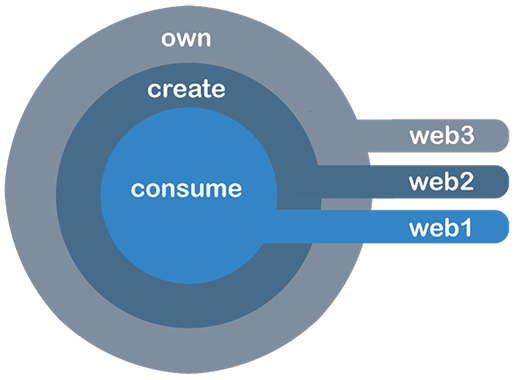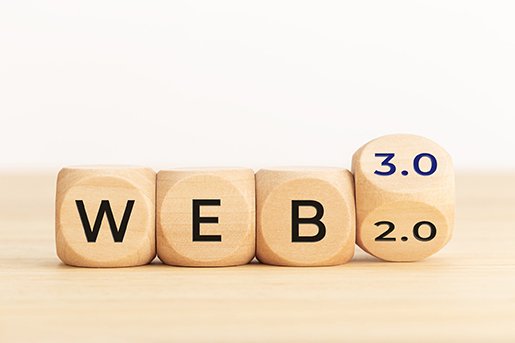K
Kathleen Martin
Guest
Unsurprisingly, I get asked “What is Web3?” a lot these days along with "What happened to blockchain?," "What is the metaverse?," and "Are NFTs legit?"
Before we answer these questions, let me pose another one: Why should you care about any of it? There are several possible scenarios where MSPs, technology vendors, integrators, et al, will need to deal with Web3, metaverse, NFTs, etc. (which I will group under “Web3 technologies” from now on):
What is Web3?
No one knows exactly what Web3 is or will be, yet. First, the terms “Web1” and “Web2” only came into common use recently and were defined in hindsight, so we’re probably a few years, or decades, away from truly understanding what Web3 really is (was), mostly likely when we are on the precipice of Web4. Second, there is an implication in those terms that each subsequent iteration of the web replaced the previous, which could not be further from the truth. Each iteration built on the previous, adding more features and function.

One way to look at this is by the above graphic. Web1 was essentially one-way communication—from website owners to the public. It was largely informational (Wikipedia, webzines, etc.) with no feedback loop. Web2 added two-way communication allowing for feedback, ecommerce, and content to upload and monetize content. However, it is entirely centralized with power consolidating in very few monolithic companies who can change their affiliate programs at a whim and have as evidenced by the criticism leveled against YouTube. Web3 will allow creators to not only own their content, but their revenue streams, turbo charging the Creator Economy. To be fair, some Web2 companies are already doing this, but they retain control. Web3 will decentralize control, granting far more power to creators.
Continue reading: https://connect.comptia.org/blog/what-is-web3-a-primer-for-msps-and-other-tech-companies
Before we answer these questions, let me pose another one: Why should you care about any of it? There are several possible scenarios where MSPs, technology vendors, integrators, et al, will need to deal with Web3, metaverse, NFTs, etc. (which I will group under “Web3 technologies” from now on):
- Your client asks, “What is Web3 (or metaverse, NFT, etc.)?” In this case, you will want to be knowledgeable to maintain your credibility with your client.
- A customer says, “I want to do something in Web3. What can we do?” You are going to want to speak knowledgeably on how their request fits within their business goals, roadmap, model, etc., where Web3 can benefit them, and what are the next steps to exploring the concept.
- Your client is required by one of their business partners or customers to be part of a decentralized (i.e., blockchain or Web3) system. You will want to know enough to hit the ground running to support your client, which may require spinning up a blockchain node for the shared system, connecting blockchain wallets, etc.
What is Web3?
No one knows exactly what Web3 is or will be, yet. First, the terms “Web1” and “Web2” only came into common use recently and were defined in hindsight, so we’re probably a few years, or decades, away from truly understanding what Web3 really is (was), mostly likely when we are on the precipice of Web4. Second, there is an implication in those terms that each subsequent iteration of the web replaced the previous, which could not be further from the truth. Each iteration built on the previous, adding more features and function.

One way to look at this is by the above graphic. Web1 was essentially one-way communication—from website owners to the public. It was largely informational (Wikipedia, webzines, etc.) with no feedback loop. Web2 added two-way communication allowing for feedback, ecommerce, and content to upload and monetize content. However, it is entirely centralized with power consolidating in very few monolithic companies who can change their affiliate programs at a whim and have as evidenced by the criticism leveled against YouTube. Web3 will allow creators to not only own their content, but their revenue streams, turbo charging the Creator Economy. To be fair, some Web2 companies are already doing this, but they retain control. Web3 will decentralize control, granting far more power to creators.
Continue reading: https://connect.comptia.org/blog/what-is-web3-a-primer-for-msps-and-other-tech-companies

